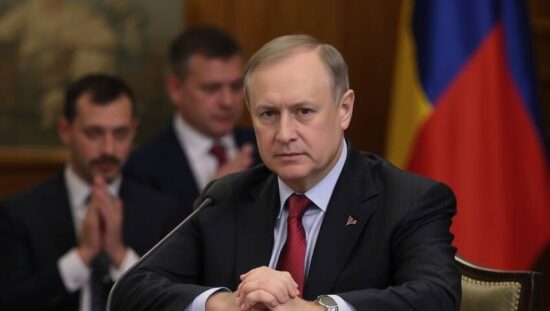After Russia allegedly supported a pro-Russian candidate in the first round of the Romanian presidential election through online manipulation, German politicians are calling for decisive countermeasures. This should also include the capability to conduct retaliatory hacking attacks, known as hackbacks.
Konstantin von Notz, the chairman of the parliamentary control committee for German intelligence agencies, told the Frankfurter Allgemeine Sonntagszeitung that Moscow “manipulates elections and the democratic discourse in Western countries.” He demanded more protection for Germany and referred to Sweden, which has created an agency with 500 staff to combat “fake news.” “Something like that is also needed here” he said.
Roderich Kiesewetter, his CDU colleague on the control committee, proposed a “warning app” that could be activated in the event of “concrete disinformation campaigns” for example, if the claim went viral that tap water in a major German city was poisoned or that a specific bank would collapse the next day. Such an app, he said, should “prevent concrete dangers like mass panic or a rush on the ATMs, but not be a truth censorship.”
Ralf Stegner, the SPD representative on the committee, also found a warning app a good idea, as it could prevent citizens from being misled by fake terror messages, for example. Germany, he said, is not well-equipped against “Russia, China, and other states.” The intelligence agencies need more staff and better equipment.
Kiesewetter and Arndt Freytag von Loringhoven, the former NATO general secretary for intelligence cooperation, not only demand defensive measures but also active deterrence. Freytag von Loringhoven said that in a “hybrid war” where the opponent uses all means to disrupt our society, one must also think about campaigns. Kiesewetter demanded that the West also consider how it could “influence the Russian public” – for example, by revealing the number of Russian soldiers killed in the war in Ukraine and the fact that many of them come from ethnic minority groups.
Regarding “hackbacks” or retaliatory hacking attacks, Kiesewetter said that this was currently forbidden because it was difficult to identify aggressors in the network. Therefore, it should be “technically possible” to identify the authors of attacks. “Hackbacks should no longer be ruled out.” Freytag von Loringhoven advised developing “active capabilities” to be able to “as a last resort” shut down hostile servers and troll farms. “We also need instruments of deterrence in the hybrid war” he concluded.
In Romania, the nationalist Călin Georgescu unexpectedly won the first round of the presidential election on November 24, after a campaign on the Chinese internet platform TikTok, apparently steered by Russia, had strongly supported him. A report by the Romanian Supreme Defense Council stated that Romania had become a “priority target for Russia’s hostile actions.” German government officials and experts shared this assessment with the FAS. A government representative said that while the Romanian intelligence agency’s claims could not be verified, the pattern described was “familiar from other contexts.” Julia Smirnova from the CEMAS Institute called the suspicion of Russian involvement “plausible.” There were “well-documented cases of similar Russian campaigns before elections in Moldova and the US.” Katja Munoz from the German Society for Foreign Policy (DGAP) stated that the Romanian events fit a pattern of what Russia had done “in other countries.





